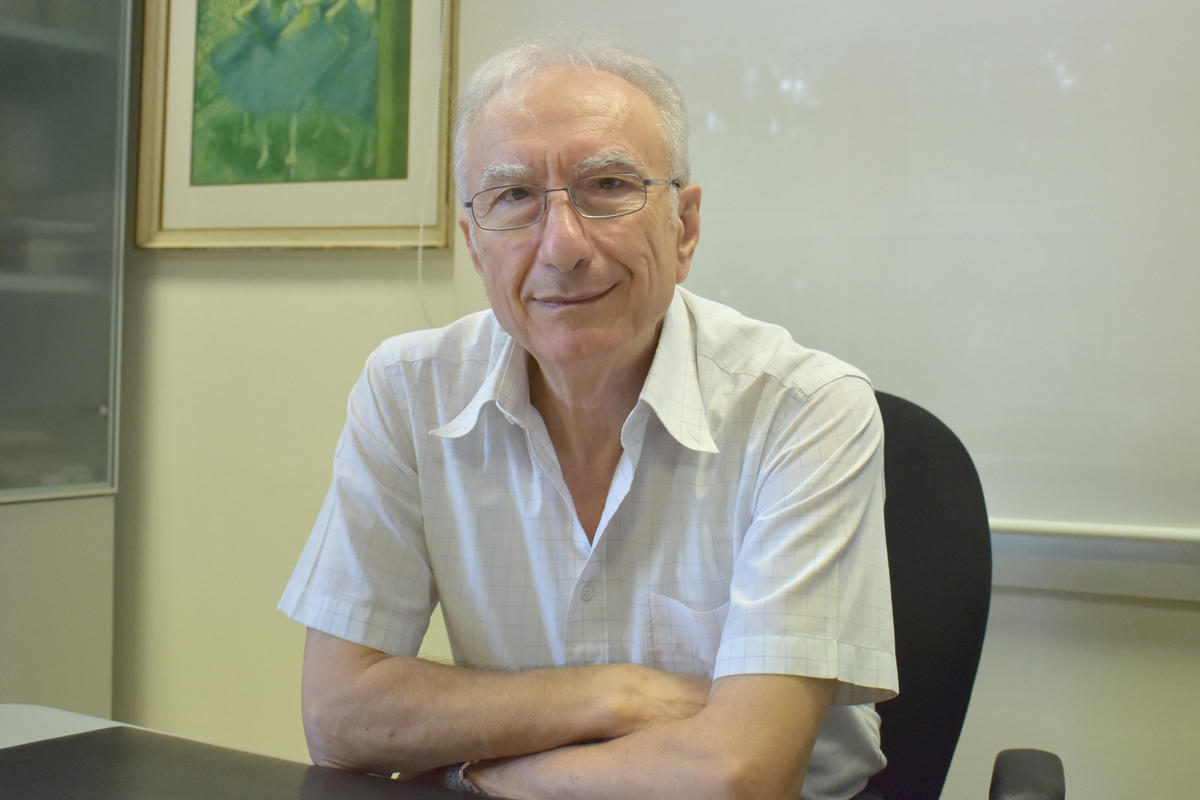Research Highlight: Writing Responsibly
Dr. Latif Zeitouni’s new book serves as a reference for writers and critics to gauge social responsibility in literature.
What defines a socially responsible novelist? What are the criteria by which literary critics measure that responsibility? These are the main questions that Professor of Arabic Latif Zeitouni tackles in his new book The Novel and Values, published this year.
The Novel and Values serves as a reference of methodology and standards by which literary critics can evaluate a novel or writer from the perspective of social responsibility and engagement, and it includes a comprehensive glossary of technical terms and concepts used in the text.
Dr. Zeitouni argues that by choosing to use the novel as a platform to advocate for social or political causes and for universal human values, the author has chosen to assume responsibility toward the reader, as well as the society to which he or she belongs.
“I associated the novel with values, because I wanted to address responsibility,” he says, “the responsibility of the writer toward the society to which they belong.”
This is essential for authors to understand, he explains, “because they have the power to mobilize public opinion.” For Dr. Zeitouni, any novel, even if shallow, will invariably leave an impact on the reader.
The question for authors, then, is this: “What are the criteria that tell a writer that he or she is doing the responsible or right thing?”
“Those standards are the values,” Dr. Zeitouni says. “I can only measure the author’s responsibility by measuring the extent to which he or she has adhered to those values.”
Dr. Zeitouni’s reference book is not his first contribution to the field of narratology. A professor of Arabic Literature for more than 30 years, he is a well-known researcher in the Arab world whose interests include narratology, narrative analysis, literary theory, and translation and linguistics studies.
In 1997, he published his first book in narrative Sémiologie du Récit de Voyage (Semiotics of Travel). In 2002, he published a Dictionary of Narratology – a compilation of terminology and concepts used in narratology, and explained in their original context. In 2012, he released The Arabic Novel: Structure and Metamorphosis of the Narration.
For Dr. Zeitouni, writing these books represents a form of exercising responsibility too.
“As an educator, I practice responsibility within my field of work by helping people who work in narratology, read critically, and use their terminology accurately,” he says. “This is my contribution to help improve their performance.”
As for the average reader, Dr. Zeitouni believes in the need to consume a wide range of different writings and not to limit oneself to a single type of work. He also urges readers not to limit themselves to historical fields, for example, because “one cannot live outside his time.”
“The past is gone,” he says.
